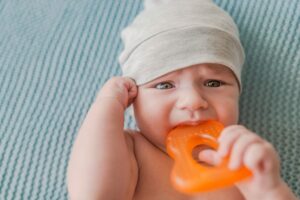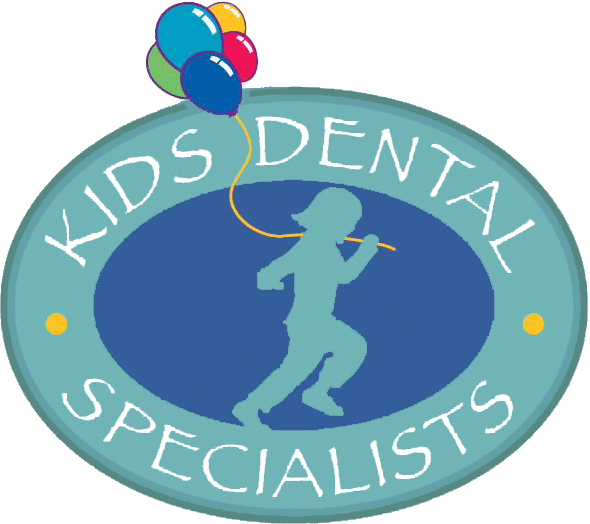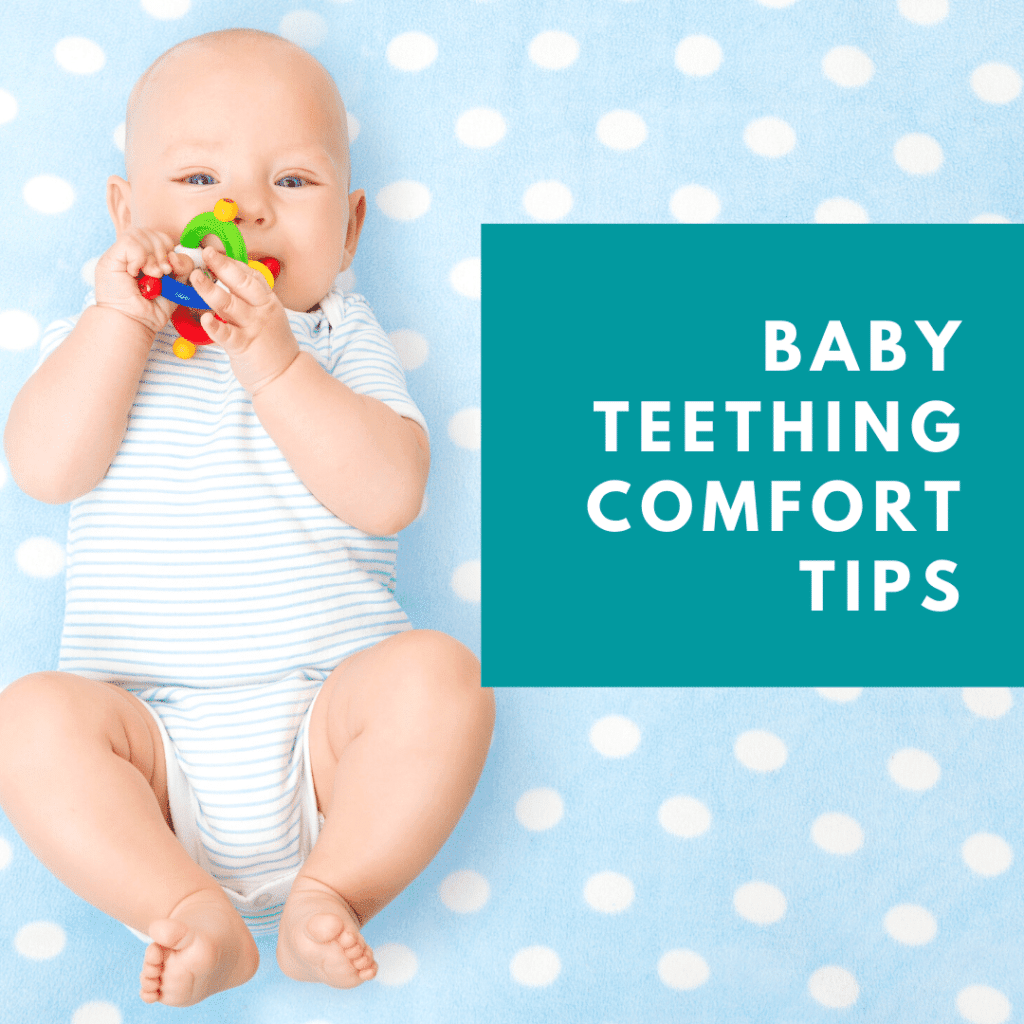Did you know that babies are born with all 20 of their primary teeth? These primary teeth, also called baby teeth, deciduous teeth, or milk teeth, are concealed below the gum line when your child is first born. In most cases, you can expect to see your child’s first tooth between the ages of 6-12 months. When baby teeth begin to erupt, or become visible above the gum line, this is known as teething.
While teething is a necessary part of growth, it can be quite uncomfortable for your little one. This is because the teething process can cause their gums to be generally sore and tender to the touch. As a result, you may notice your child’s disposition suddenly changes. When teething, your child may have trouble sleeping, become more fussy or irritable, lose their appetite, or start drooling more than usual. Some little onces may also try to gnaw on hard objects or may have a slightly raised temperature. However, teethting should never make your baby sick and if your child has a fever of 101° or higher, cough, diarrhea, vomiting, or rashes, call your pediatrician immediately.
With that being said, teething can be an uncomfortable period for your child and a stressful time for you. In order to make things easier on both of you, here are some teething tips:
Massage their gums

Cold is your best friend

Modify their diet
The younger your child is, the more likely it is that they are on a soft foods diet. However, as your child begins to eat more solid foods, you may need to make temporary adjustments when they are having an especially bad day of teething. On these days, feeding soft, cool foods like yogurt, applesauce, frozen fruit, and smoothies can help to soothe their achy mouth and make sure they are still eating.
Avoid certain teething remedies
There are a few teething remedies that have been found to either be detrimental or non-effectie when it comes to alleviating teething discomfort. Therefore, it is recommended to limit or avoid these remedies: teething jewelry (necklaces, bracelets, anklets), herbal remedies, numbing medications such as lidocaine and benzocain, and using more than one acetaminophen or ibuprofen.
Once your child’s first tooth comes in, it’s time to schedule their first dental appointment. In the meantime, you will need to be responsible for your child’s oral care until they are old enough to do so themselves. If you haven’t already, be sure to wipe down their gums twice a day and brush any erupted teeth. You should use a soft-bristled baby toothbrush and a smear of toothpaste no bigger than a grain of rice. As your child gets older, they can start brushing their teeth when they can spit. At this point, you can increase the amount of toothpaste to a pea size. Teaching proper oral care at an early age will help your child develop healthy dental habits as they grow.

Dr. Leyster is a board-certified pediatric dental specialist. He is recognized as a Diplomate of the American Board of Pediatric Dentistry. He has served as faculty as an Assistant Professor at the University of Southern California School of Dentistry in the Division of Public Health and Pediatric Dentistry. Dr. Leyster belongs to the American Academy of Pediatric Dentistry, American Board of Pediatric Dentistry, California Society of Pediatric Dentistry, California Dental Association, Pacific Northwest Dental Association, and the American Dental Association.






